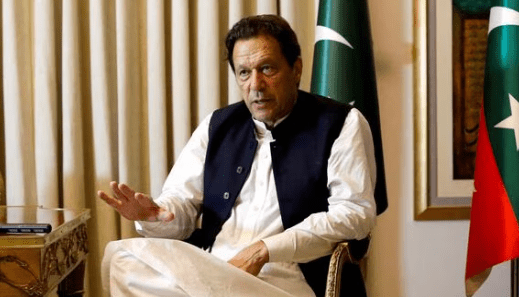
Accusing 71-year-old jailed former PM Imran Khan of anti-state activities, Pakistan’s Information Minister Attaullah Tarar told a press conference in Islamabad on July 15: “In view of the foreign funding case, May 9 riots, and the cipher episode as well as the resolution passed in the US, we believe that there is very credible evidence present to have Khan’s party, the Pakistan Tehreek-e-Insaf (PTI), banned.”
According to Pakistan observers, the move is a reflection of the mindset of the rulers who are busy exacting their political goals and in the course of that destroying the democratic values of the country.
When Pakistan voted PM Shehbaz Sharif-led government to power in February, the civilians expected that the new government would ensure a brighter future and deliver good governance.
However, there seems to be no change to the political mindset of the new regime which is engaged in settling their past scores with PTI rather than dealing with serious issues like a sinking economy for betterment of the life of civilians and restore the democratic polity of the nation which is dominated by the country’s all-powerful military.
The government announced their decision to ban the country’s once-ruling party after citing accusations of inciting violent protests last year and leaking classified information.
The decision seems a blow to the already tormented multi-party political landscape of the nation which has seen disputes and conflicts over the years and even led to a dictatorial regime of General Musharraf when the voice of democracy was stifled.
The government’s action seems to be politically motivated, especially at a time when the country’s Supreme Court recognised the PTI’s bona fides as a political party.
Fearing a state of disorder, an Editorial piece published in Dawn News said: “It is dangerous for a government to appear so desperate. Like grains of sand, power slips quicker from the hand the tighter the fist is clenched. In their obsession with countering the resurgent PTI, the ruling parties are, wittingly or unwittingly, pushing the country towards even more chaos and anarchy instead of accepting ground realities and working around them.”
In another opinion piece published in The Express Tribune, writer Shahzad Chaudhry said: “Sham egos and acquired vanity have no place in a country begging for an inclusive leadership and a joint effort to evict the malaise. There are critical objectives at hand, foremost of which is to find stability so that what meagre help becomes available is put to productive use. Stability will not spawn by denying a large segment of the population its franchise and eliminating what for the moment stands most popular. It is by embracing all that we will get there. Neither should it be about one man who should hold to ransom the fate of this nation. No one person is larger than the nation.”
The decision also triggered doubts in the minds of other political experts and even traditional geo-political allies like the United States.
Constitutional expert Faisal Fareed Chaudhry told Al Jazeera: “The government can file a reference, but the final verdict will be from the Supreme Court. It is important to remember that only last week the court declared PTI a political party.”
Despite its chief and former PM Imran Khan languishing in Adiala Jail in Rawalpindi (since his arrest on May 9, 2023), PTI fought the recently held elections with all guns blazing, braving numerous hurdles.
The reserved seat controversy emerged following the general polls in February when a month before the polls Pakistan’s election commission revoked the party’s electoral symbol, a cricket bat, on charges of violating electoral laws.
The party received a jolt when Imran Khan was sentenced on multiple charges just before the elections.
The election was considered to be crucial for PTI since it was removed from power in 2022 after a parliamentary vote of no-confidence.
Despite all setbacks, the PTI performed overwhelmingly in the polls when its candidates contested independently. Bagging 93 seats, PTI performed stronger than PMLN’s 75 and PPP’s 54.
Now, with the reserved seats added after the Supreme Court ruling, the PMLN-led government would no longer have a two-thirds majority in parliament, needed for constitutional amendments and experts believe the banning step clearly reflects the government’s attempt to weaken the opposition and continue its presence despite getting politically weakened.
“They [the government] just want to weaken their rival in any way possible, especially as PTI is getting relief from the courts,” Ahmed Ijaz, a political analyst, told Al Jazeera.
The Human Rights Commission of Pakistan (HRCP) said they were shocked by the decision.
“HRCP is shocked by the government’s decision to ban the PTI. Not only is this move in flagrant violation of party members’ right to association under Article 17 of the Constitution, but it is also an enormous blow to democratic norms, especially when the Supreme Court has unanimously ruled that the PTI is a political party,” it said.
“Moreover, such a move reeks of political desperation, given that it follows closely on the heels of the apex court’s ruling that has effectively made the PTI the single largest party in the National Assembly after making it eligible for reserved seats for women and minorities,” read the statement by the rights body which demanded immediate revocation of the order.
Rather than banning a strong political outfit, the ruling group should try to uphold democratic values and aspirations of the people which will help them survive the current challenges. But in Pakistan democracy is always at the receiving end.
(ENDS)






